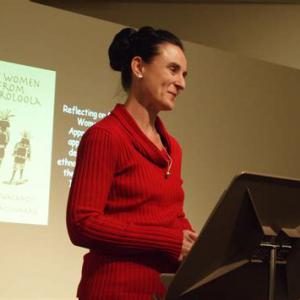Initially developed within the context of education, specifically indigenous education, this assessment was explicitly designed to embed (both practically and pedagogically) indigenous ways of knowing, being, and doing within this assessment framework. With this mind, this assessment adopts a reflexive, dialogic, relational approach to assessing students' knowledge and competencies. This assessment sees students prepare and deliver a 5 minute PowerPoint presentation to the teaching team. Following these, the teaching team discuss presentation with students and engage in further discussion about their overall learning experiences. In EDUC2090 students are asked to reflect on elements of their most significant learning throughout the duration of the course (personally, politically, and pedagogically) in relation to the indigenous education space. When completing this assessment, students are expected to (1) make reference to lecture material, workshop activities and content, key theoretical concepts and critical literature covered in this course and (2) demonstrate critical depth and engagement in terms of their learning across the semester. This is a summative assessment that takes place at the end of the semester so as to assess students overall competencies and learning outcomes.



